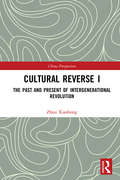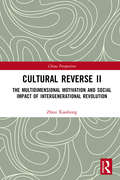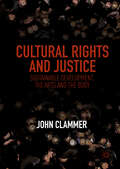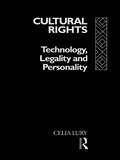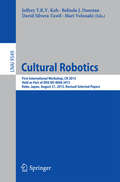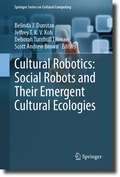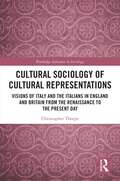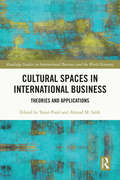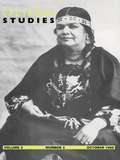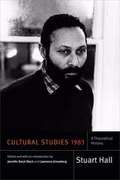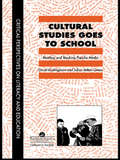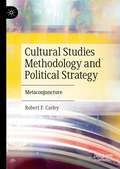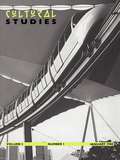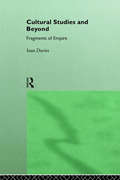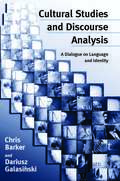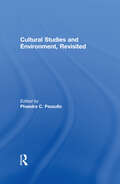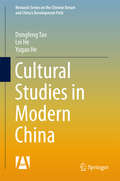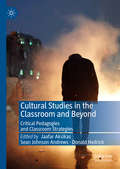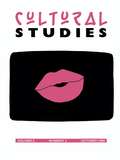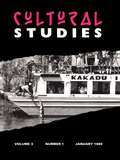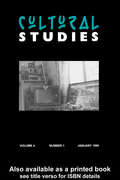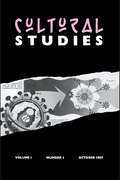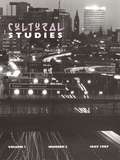- Table View
- List View
Cultural Reverse I: The Past and Present of Intergenerational Revolution (China Perspectives)
by Xiaohong ZhouThe phenomenon of "Cultural Reverse" (文化反哺) emerged in the 1980s after China's reform and opening up. In this era of rapid social change, the older generation started to learn from the younger generation across many fields, in a way that is markedly similar to the biological phenomenon of "The old crow that keeps barking, fed by their children" from ancient Chinese poetry. In this book, the author discusses this new academic concept and other aspects of Chinese intergenerational relations. In the first volume, the author explains some popular social science theories about generations, traces the history of Chinese intergenerational relationships, and, through focus group interviews with 77 families in mainland China, comprehensively discusses the younger generation's values, attitudes, behavior patterns, and the ways in which they differ from their ancestors’. The book will be a valuable resource for scholars of Chinese sociology, and also general readers interested in contemporary Chinese society.
Cultural Reverse Ⅱ: The Multidimensional Motivation and Social Impact of Intergenerational Revolution (China Perspectives)
by Xiaohong ZhouThe book proposes a new academic concept, "Cultural Reverse" (文化反哺), referring to the phenomeno beginning in China in the 1980s in which the older generation started to learn from the younger generation, and analyses the multiple causes and social impacts of this trend. Following on from the first volume, this second volume further analyses the multiple causes of cultural reverse, including rapid social change, the influence of peer groups, and the impact of the media. Then, in a broader context, the author discusses the complex interdependence of and conflict among the State, society, and youth. He tells a story of the transformation of Chinese youth over the past hundred years, and names this "one-place" (fast-changing China) and "one-time only" (unrepeatable) phenomenon "China feeling". The innovative content of the book pushes the barriers of the academic field. Scholars of Chinese sociology and general readers interested in contemporary Chinese society will find this book to be essential.
Cultural Rights and Justice: Sustainable Development, The Arts And The Body
by John ClammerThis book provides an innovative contribution to the emerging field of culture and development through the lens of cultural rights, arguing in favour of a fruitful dialogue between human rights, development studies, critical cultural studies, and concerns about the protection and preservation of cultural diversity. It breaks with established approaches by introducing the themes of aesthetics, embodiment, narrative and peace studies into the field of culture and development, and in doing so, proposes both an expanded conception of cultural rights and a holistic vision of development that not only includes these elements in a central way, but which argues that genuine sustainability must include the cultural dimension, including the notion of cultural justice as recognition, protection and respect extended to the many expressions of human imagination in this world.
Cultural Rights: Technology, Legality and Personality (International Library of Sociology)
by Celia LuryCultural Rights aims to combine sociology of culture and cultural studies approaches to provide an innovative interpretation of contemporary culture. It develops Walter Benjamin's arguments on the effects of mechanical reproduction by seeing what has happened to originality and authenticity in postmodern culture. One aspect of this culture is that reproduction and simulation have become listless, so that distinguishing what is real from what is fabricated is a problem of daily life for everyone. Celia Lury establishes a clear framework for studying these matters by comparing a regime of cultural rights ordered by copyright, authorship and originality with one defined by trademark, branding and simulation. This move is illustrated through concise and accessible histories of three major cultural technologies - print, broadcasting and information technology - and the presentation of research into the contemporary culture industry. The gendered dimensions of this transformation are explored by looking at the significance of the category of women in the process of cultural reproduction.
Cultural Robotics: First International Workshop, CR 2015, Held as Part of IEEE RO-MAN 2015, Kobe, Japan, August 31, 2015. Revised Selected Papers (Lecture Notes in Computer Science #9549)
by Jeffrey T.K.V. Koh Belinda J. Dunstan David Silvera-Tawil Mari VelonakiThis LNAI 9549 constitutes the refereed proceedings of the First International Workshop in Cultural Robotics 2015, held as part of the 24th International Symposium on Robot and Human Interactive Communication held in Kobe, Japan, in August/September 2015. A total of 12 full papers and 1 short paper were accepted from a total of 26 initially submitted. The following papers are organized into four categories. These categories are indicative of the extent to which culture has influenced the design or application of the robots involved, and explore a progression in the emersion and overlap between human and robotic generated culture.
Cultural Robotics: Social Robots and Their Emergent Cultural Ecologies (Springer Series on Cultural Computing)
by Belinda J. Dunstan Jeffrey T. K. V. Koh Deborah Turnbull Tillman Scott Andrew BrownThis edited collection approaches the field of social robotics from the perspective of a cultural ecology, fostering a deeper examination of the reach of robotic technology into the lived experience of diverse human populations, as well as the impact of human cultures on the development and design of these social agents. To address the broad topic of Cultural Robotics, the book is sectioned into three focus areas: Human Futures, Assistive Technologies, and Creative Platforms and their Communities. The Human Futures section includes chapters on the histories and future of social robot morphology design, sensory and sonic interaction with robots, technology ethics, material explorations of embodiment, and robotic performed sentience. The Assistive Technologies section presents chapters from community-led teams, and researchers working to adopt a strengths-based approach to designing assistive technologies for those with disability or neurodivergence. Importantly, this section contains work written by authors belonging to those communities. Creative Platforms and their Communities looks to the creative cross-disciplinary researchers adopting robotics within their art practices, those contributing creatively to more traditional robotics research, and the testing of robotics in non-traditional platforms such as museum and gallery spaces. Cultural Robotics: Social Robots and their Emergent Cultural Ecologies makes a case for the development of social robotics to be increasingly informed by community-led transdisciplinary research, to be decentralised and democratised, shaped by teams with a diversity of backgrounds, informed by both experts and non-experts, and tested in both traditional and non-traditional platforms. In this way, the field of cultural robotics as an ecological approach to encompassing the widest possible spectrum of human experience in the development of social robotics can be advanced.
Cultural Sociology of Cultural Representations: Visions of Italy and the Italians in England and Britain from the Renaissance to the Present Day (Routledge Advances in Sociology)
by Christopher ThorpeThis book provides a historical cultural sociological analysis of cultural representations of Italy in England and later Britain, from the period of the Italian Renaissance to the present day. Rooted in a critical account of orthodox social scientific approaches to thinking and theorising cultural representation, the study combines analytical frames and conceptual apparatus from Bourdieu’s Field theory and Yale School cultural sociology. Drawing from a wide range of empirical data and studies, the book demonstrates the significance of representations of the Italian peninsula and its people for exploring a range of cultural sociological phenomena, from the ‘classing’ and ‘commodification’ of Italy to the role of Italian symbolism for negotiating cultural trauma, identify formation, and expressions of cultural edification, veneration, and emulation. As such, it will be of interest to scholars of (cultural) sociology, history, anthropology, Italian studies as well as scholars in international studies interested in intercultural exchange and representations of other nations, national cultures, and otherness.
Cultural Sociology: An Introduction (21st Century Sociology Ser. #1)
by David Inglis Laura Desfor Edles Ian Woodward Les Back Ron Jacobs Andy Bennett Margaret GibsonCultural Sociology: An Introduction is the first dedicated student textbook to address cultural sociology as a legitimate model for sociological thinking and research. Highly renowned authors present a rich overview of major sociological themes and the various empirical applications of cultural sociology. A timely introductory overview to this increasingly significant field which provides invaluable summaries of key studies and approaches within cultural sociology Clearly written and designed, with accessible summaries of thematic topics, covering race, class, politics, religion, media, fashion, and music International experts contribute chapters in their field of research, including a chapter by David Chaney, a founder of cultural sociology Offers a unified set of theoretical and methodological tools for those wishing to apply a cultural sociological approach in their work
Cultural Spaces in International Business: Theories and Applications (Routledge Studies in International Business and the World Economy)
by Taran PatelCulture studies in international business are passing through difficult times of scrutiny and critique. This is due to the fact that the paradigms, approaches, and methods used so far to study culture have been limited in their scope. For several decades now, approaches that consider national cultures and geo-ethnic origins of interacting individuals have dominated management literature. This book distinguishes itself from other books on Culture in International Business (CIB) studies in two important ways. First, it illustrates how Mary Douglas’s Cultural Theory framework (referred to commonly as DCF) can be used to explore different aspects of international business. This sets the stage for future scholars to consider DCF as an alternative tool of cultural sense making as opposed to limiting themselves to categorical frameworks grounded in static notions of national and/or corporate culture. The second unique feature is that it focuses on the complexities of the applied side of culture (i.e., it takes a culture-in-practice perspective), while simultaneously emphasizing the dynamicity and diversity of culture. The book concludes by offering suggestions for the future of CIB studies. This domain, it predicts, may witness significant changes in the way culture is seen as influencing workplace relations. It also identifies other areas on which CIB scholars may need to focus attention in the future: culture in an increasingly digitalised world, culture and the organisation as a system, and culture and the intelligent/knowledgeable organisation. It will be of interest to researchers, academics, and students in the fields of cross-cultural management, international business, human resource management.
Cultural Studies (Volume 2 Issue 3)
by John FiskeFirst Published in 1988. Routledge is an imprint of Taylor & Francis, an informa company.
Cultural Studies 1983: A Theoretical History
by Lawrence Grossberg Stuart Hall Jennifer Daryl SlackThe publication of Cultural Studies 1983 is a touchstone event in the history of Cultural Studies and a testament to Stuart Hall's unparalleled contributions. The eight foundational lectures Hall delivered at the University of Illinois in 1983 introduced North American audiences to a thinker and discipline that would shift the course of critical scholarship. Unavailable until now, these lectures present Hall's original engagements with the theoretical positions that contributed to the formation of Cultural Studies. Throughout this personally guided tour of Cultural Studies' intellectual genealogy, Hall discusses the work of Richard Hoggart, Raymond Williams, and E. P. Thompson; the influence of structuralism; the limitations and possibilities of Marxist theory; and the importance of Althusser and Gramsci. Throughout these theoretical reflections, Hall insists that Cultural Studies aims to provide the means for political change.
Cultural Studies Goes To School: Reading And Teaching Popular Media (Critical Perspectives On Literacy And Education Ser.)
by Julian Sefton-Green David BuckinghamFirst Published in 1994. Routledge is an imprint of Taylor & Francis, an informa company.
Cultural Studies Methodology and Political Strategy: Metaconjuncture
by Robert F. CarleyThis book is an intervention into cultural studies' theoretical and methodological foundations. It addresses a crisis in conjunctural analysis: that there is no theorized method for conjunctural analysis as it pertains to recognizing a conjunctural shift or the emergence of an organic crisis. This crisis is connected to the belief that the definition of the conjuncture is ambiguous in Gramsci’s work, but using a broader range of primary, secondary, and also untranslated sources on the conjuncture, Carley demonstrates that Gramsci has decisively settled that ambiguity. Through a philological approach to Gramsci’s original texts, this book alters the debate around conjunctural analysis and offers means to reinterpret cultural studies and its relationship to its founding thinkers.
Cultural Studies V2 Issue 1: Volume 4, Issue 1
by John FiskeFirst published in 1988. Routledge is an imprint of Taylor & Francis, an informa company.
Cultural Studies and Beyond: Fragments of Empire
by Ioan DaviesThis lively book will be essential to all those attempting to understand the state of Cultural Studies in the West today. Ion Davies, who was in at the birth of Cultural Studies in Britain and followed its development in many parts of the world, is uniquely qualified to add historical depth and comparative breadth to this subject. Introducing the central theoretical issues, as well as the key personalities, Cultural Studies and Beyond traces the origins, growth and diffusion of the subject.
Cultural Studies and Discourse Analysis: A Dialogue on Language and Identity (Cultural Studies)
by Chris Barker Dariusz Galasi SkiThis novel and important book brings together insights from cultural studies and critical discourse analysis to examine the fruitful links between the two. Cultural Studies and Discourse Analysis shows that critical discourse analysis is able to provide the analytic context, skills and tools by which we can study how language constructs, constitutes and shapes the social world and demonstrates in detail how the methodological approach of critical discourse analysis can enhance cultural studies. In a richly argued discussion, the authors show how marrying the methodology of critical discourse analysis with cultural studies enlarges our understanding of gender and ethnicity.
Cultural Studies and Environment, Revisited
by Phaedra C. PezzulloThe environment is perhaps most misunderstood as a static place, somewhere "out there," separated from the practices of our everyday lives. Given this assumption, environmental movements and concerns have remained mostly marginalized or denigrated in cultural studies publications, conferences, and presentations. Recent global developments have made changing this oversight and, at times, direct resistance to engaging environmental concerns a new priority. This edited collection illustrates an appreciation of the dynamic, palpable, and significant ways the environment permeates culture (and vice versa), as well as a collective commitment to the ways that cultural studies has more to offer—and to learn from—taking environmental matters to heart. Like foundational categories of identity, economics, and historical context, this collection reminds us why the environment is and should be considered relevant to any work done in the name of "cultural studies." Including research from four continents and across media, the authors offer insights on timely topics such as food, tourism, human/animal relations, forests, queer theory, indigenous rights, and water. This book was published as a special issue of Cultural Studies.
Cultural Studies in Modern China (Research Series on the Chinese Dream and China’s Development Path)
by Dongfeng Tao Lei He Yugao HeAs the first book to introduce and analyze cultural studies in contemporary China, this volume is an important resource for Western scholars wishing to understand the rise and development of cultural studies in China. Organized according to subject, it includes extensive material examining the relationships between culture and politics, as well as culture and institutions in contemporary China. Further, it discusses the development of cultural debates.
Cultural Studies in the Classroom and Beyond: Critical Pedagogies and Classroom Strategies
by Jaafar Aksikas Sean Johnson Andrews Donald HedrickThis edited volume seeks to combine and highlight the theoretical and practical aspects of teaching by exploring and reflecting on the ways in which Cultural Studies is taught and practiced at both the undergraduate and graduate levels, in the US and internationally. Contributors create a space where connections among Cultural Studies practitioners across generations and locations are formed. Because the alliances built by Cultural Studies practitioners in the U.S. and the global north are deeply shaped by the global south/Third World perspectives, this book extends an invitation to teachers and practitioners in and outside of the US, including those who may offer a transnational perspective on teaching and practicing Cultural Studies. This volume promises to be a trailblazing collection of first-rate essays by leading and emerging figures in the field of Cultural Studies.
Cultural Studies: Environmental Educators Dancing Away From Mechanism (Transgressions: Cultural Studies And Education Ser. #Vol. 30)
by James DonaldFirst Published in 1987. Routledge is an imprint of Taylor & Francis, an informa company.
Cultural Studies: Volume 3 No. 3
by John FiskeFirst Published in 1990. Routledge is an imprint of Taylor & Francis, an informa company.
Cultural Studies: Volume 3, Issue 1
by John FiskeThis book should be of interest to general readers as well as students of cultural studies and communication.
Cultural Studies: Volume 4, Issue 1
by John FiskeThis book should be of interest to general, as well as students of cultural studies and communication.
Cultural Studies: Volume 4, Issue 1
by John FiskeFirst Published in 1987. Routledge is an imprint of Taylor & Francis, an informa company.
Cultural Studies: Volume 4, Issue 1
by John FiskeFirst published in 1987. Routledge is an imprint of Taylor & Francis, an informa company.
